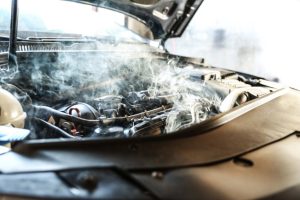
A regular diagnostic of your engine can help identify and address potential problems before they escalate. Here are a few tips from your San Jose Nissan dealer about common things that are checked in an engine diagnostic.
Check Engine Light Inspection
The first step in a diagnostic of your engine is often the most apparent – checking the “Check Engine” light. This warning light serves as a signal that your vehicle’s onboard computer system has detected an issue. During the diagnostic, technicians use specialized equipment to read error codes, which let them know the nature of the problem.
Visual Inspection
Technicians examine the engine bay for any visible signs of wear, damage, or leaks. This thorough examination can reveal issues such as loose wires, corroded connections, or fluid leaks that may not trigger the check engine light but can affect your Nissan’s performance.
Electronic System Scanning
Modern Nissans come equipped with advanced electronic systems that control various aspects of the vehicle. During a diagnostic, technicians use diagnostic scanners to access these systems and gather real-time data on engine performance. This data helps identify any anomalies or irregularities that may require attention.
Fuel System Assessment
A significant aspect of a diagnostic of your engine involves assessing the fuel system. Technicians examine fuel injectors, fuel filters, and the overall fuel delivery system. Any clogs or malfunctioning components within the fuel system can lead to decreased fuel efficiency and engine performance.
Exhaust Gas Analysis
To ensure your Nissan’s engine is running efficiently and adhering to emissions standards, an exhaust gas analysis is performed. This test measures the levels of various gases in the exhaust, such as carbon monoxide and oxygen. High levels of emissions can indicate issues with the engine’s combustion process.
Compression Testing
Compression testing is a crucial diagnostic step for determining the health of your engine’s internal components. Technicians measure the compression in each cylinder, ensuring that it falls within the manufacturer’s recommended specifications. Low compression can indicate worn piston rings, valves, or cylinder head gaskets.
Sensors and Sensors Connectivity
Nissan vehicles are equipped with numerous sensors that monitor various parameters like engine temperature, air intake, and more. Technicians check the sensors and their connectivity to ensure accurate data is being transmitted to the engine control unit. Faulty sensors can lead to poor engine performance.
Ignition System Inspection
The ignition system plays a crucial role in starting and running your Nissan’s engine. During the diagnostic, technicians examine the spark plugs, ignition coils, and distributor to ensure they are functioning correctly. A well-maintained ignition system contributes to smooth engine operation.
If you suspect any engine problems, or it’s time for a routine diagnostic, contact Stevens Creek Nissan. Our experienced technicians here in Santa Clara, CA will ensure your Nissan continues to perform at its best.



